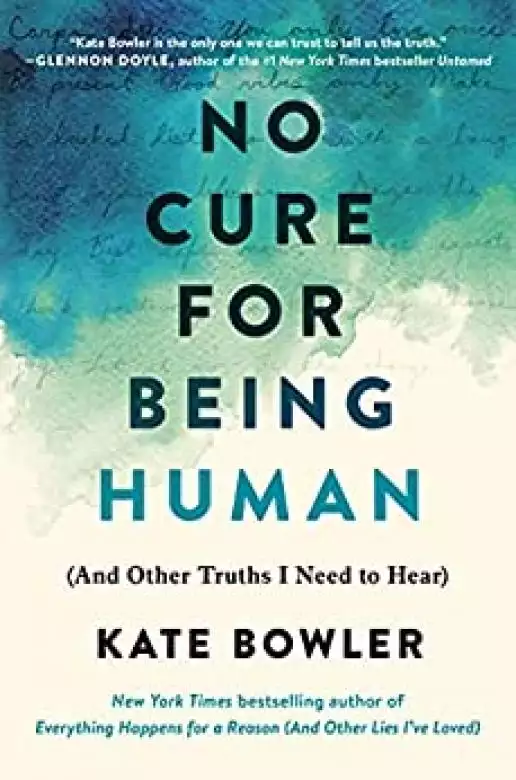CHAPTER ONE
Best Life Now
I was in bed in the surgical wing of Duke University Hospital when the doctor popped his head in the door and smiled apologetically before flicking on the fluorescent lights. It was 4:00 a.m., the end of my second night in the hospital, but no one in a hospital sleeps in the conventional sense. There are only intervals of sleep without rest, interrupted by unfamiliar voices.
What’s your date of birth? On a scale from one to ten, how would you rate your pain?
To this day, if you wake me up from a nap, I will immediately tell you my birthday.
I opened my eyes and saw a boyish face. The doctor wore a white coat too large for his frame and his eyes were bleary either from a day that had only begun or from a night that had gone on too long.
“Six, sixteen, 1980. June 16.”
“Right,” the doctor said, then paused. “So…you’re thirty-five.”
I nodded, and my eyes began to water. I brushed the tears away quickly. Not the right moment for that now, thank you.
“If you keep replenishing my fluids, I’ll just keep crying,” I explained. “Maybe keep me in a stage of light dehydration for the next few days.”
The doctor suppressed a laugh and began to riffle through my case history. “The patient has a history of abdominal pain after meals. Significant weight loss. Nausea and vomiting. No ultrasound evidence of gallstones or cholecystitis, but results of hepatobiliary scan led to a surgical consult to remove the patient’s gallbladder…then you got a CT scan.”
“No,” I corrected. “I yelled at a surgeon for the first time in my life and said that I was not leaving his office without a scan. Then they ordered a scan.”
This had been the biggest showdown of my life, the doleful surgeon with his arms folded and me loudly demanding some kind of treatment. It had been five months, and I had lost thirty pounds. I was doubled over with the pain. “I can’t bear this much longer,” I had said, again and again as doctors benignly shuffled me along.
The young doctor glanced up at me and then turned back to his notes.
“The scan revealed that the liver has multiple focal lesions; the largest are seen within the caudate and right hepatic lobe in addition to several scattered subcentimeter lesions, some are noted within the periphery of the liver, and some are subcapsular. The large left transverse colon mass was what created the functional obstruction for you, hence the pain.” He looked up at me quickly. “And then there are local regional lymph nodes that are worrisome for early peritoneal carcinomatosis.”
The heart monitor beeped softly.
I cleared my throat nervously. “Um, so, this is my first real conversation since the diagnosis. I mean, I know I had surgery, obviously.”
Flustered, I tried to start again. “The day before yesterday, a doctor’s assistant called me on the phone at work to tell me that I had Stage Four cancer. But I don’t know what these terms mean except that it sounds like I am a spaghetti bowl of cancer. People keep saying ‘lesions,’ ” I said. “I haven’t had a chance to google it. What are lesions exactly?”
“Tumors. We’re talking about tumors.”
“Ohhhhh,” I said, embarrassed by another flood of tears. “Right. And are there more than four stages of cancer?”
“No.”
“Okay, so I have the…most. The most cancer,” I finished lamely.
The doctor stood there for a minute, raking his hands through his hair, whatever plans he had for this conversation deteriorating. He lowered himself onto the chair beside the bed but remained bolt upright as if to remind us both that he could leave at any time. The room was warm and stale. A silence folded over us, giving me a moment to look at him more carefully now, his mussy hair and anxious expression, wrinkled coat and brand-new sneakers. He is too young for this. God, we are both too young for this.
“I’d like to ask you some questions, if you don’t mind.”
“By all means.”
“I’d like to know what my odds are. Of living. I’d like to know if I will live. No one has mentioned that.” I kept my voice invitational. I will not shoot this messenger. This is a friendly exchange between interested peers.
He paused. “I only know how to answer that by telling you the median survival rate for people who share your diagnosis.”
“Okay.”
“Based on the information we have about people with Stage Four colon cancer, the survival rate is fourteen percent,” he said and began to scan the room as if looking for a window to climb out of.
“A fourteen percent chance of survival,” I repeated in a neutral voice. My head felt suddenly heavy as if I were pushing the words up a steep hill. Fourteen percent. Fourteen percent. We lapsed into another silence. The doctor shifted in his seat. He rose to leave, but I reached out, abruptly, ...
We hope you are enjoying the book so far. To continue reading...
Copyright © 2025 All Rights Reserved
